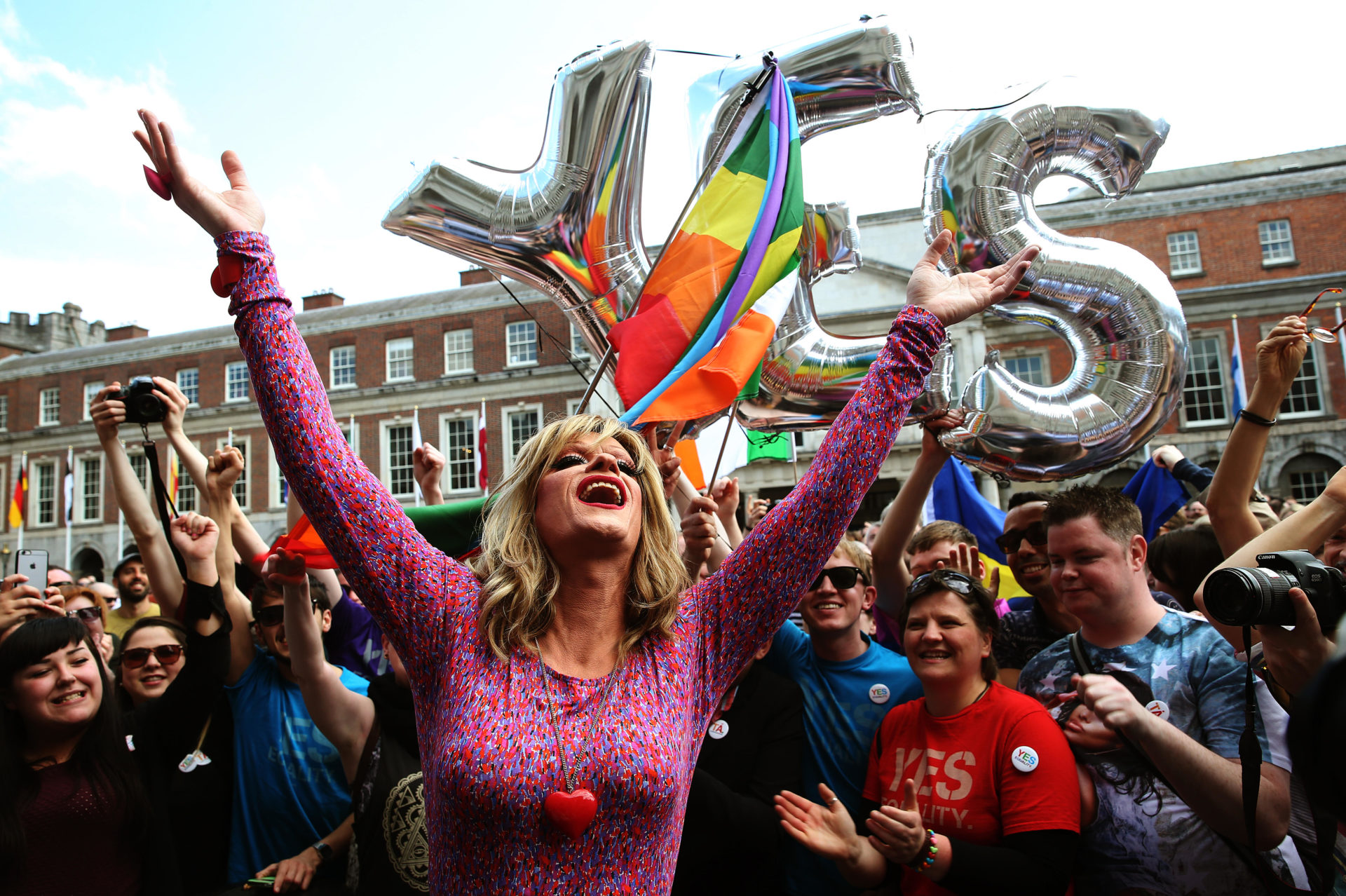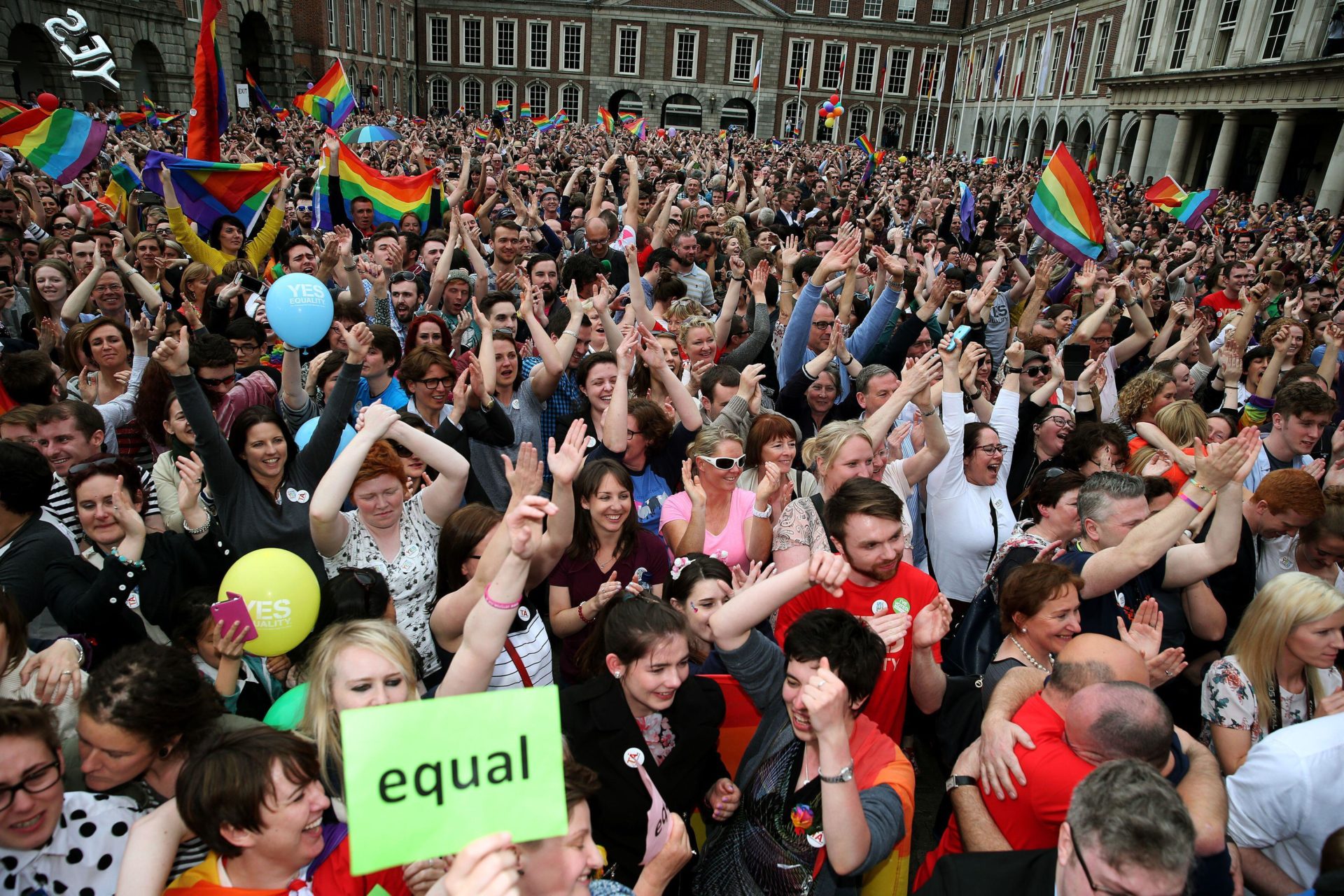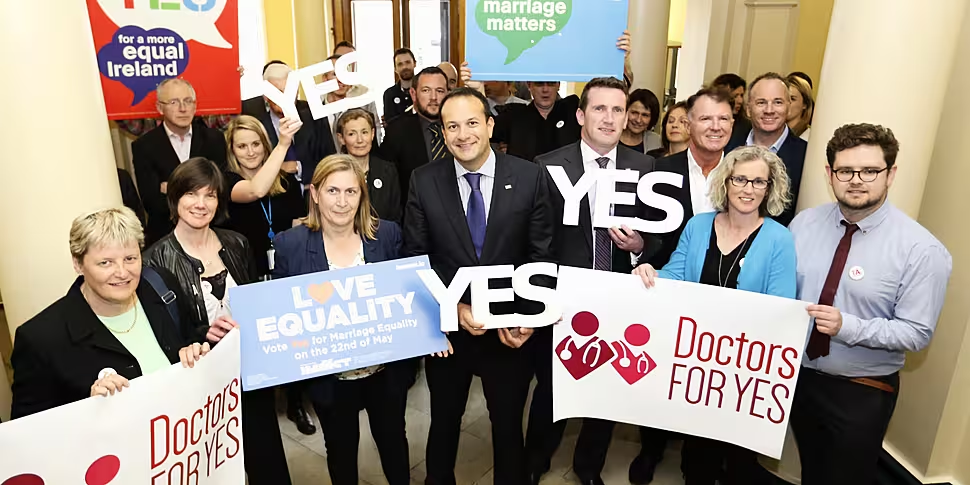Ireland's vote in favour of gay marriage in 2015 ago “spurred” the Government on to bring in abortion and trans rights, Leo Varadkar has said.
A decade ago, 62% of people voted in favour of amending Bunreacht na hÉireann and granting gay couples the right to wed.
At the time, Leo Varadkar was Minister for Health and had come out publicly a few months beforehand as gay.
On Newstalk Breakfast, he described it as “one of the best days” in his political career.
“Largely because we saw a country that was very united; we talk a lot about how divided society are now around the world - elections that are 51, 49, red states, blue states,” the former Taoiseach said.
"The thing that I found overwhelming was that when we were at the count centre that morning and we were anticipating something similar to the divorce referendum in ‘95 - where we win big in the cities and we hoped that would be enough to be ahead of the big no vote in the rural areas, that didn’t happen.
“I could see the ballot boxes opening in all parts of my constituency, affluent, working class areas - massive yeses approaching 70%.
“Then we saw the results come in from other parts of the country.”
 Drag queen and gay rights activist Rory O'Neill, known by his stage name as Panti Bliss arrives at the Central Count Centre in Dublin Castle, Dublin, as votes continue to be counted in the referendum on same-sex marriage. Picture by: Alamy.com.
Drag queen and gay rights activist Rory O'Neill, known by his stage name as Panti Bliss arrives at the Central Count Centre in Dublin Castle, Dublin, as votes continue to be counted in the referendum on same-sex marriage. Picture by: Alamy.com.Mr Varadkar added that while there were “pockets” of opposition of gay marriage, the results overwhelmingly suggested Ireland had become a much more socially liberal country.
“It was a country that was embracing the idea of equality before the law for everyone,” he said.
“Equal rights, freedom, equality of opportunity - and was doing it without a huge rura, urban divide or a gender divide or class divide.
“All of the things that we see so much of now in politics.
“That day we didn’t and it spurred us on to do other things - like, for example, the Gender Recognition Act and things like repealing the 8th amendment.
“It wasn’t just a one day event, it was part of a wave of progress, liberty and freedom that Ireland was part of.”
 Gay marriage referendum results day. Picture by: PA Images / Alamy. 23 May 2015
Gay marriage referendum results day. Picture by: PA Images / Alamy. 23 May 2015Two months after the referendum, the Oireachtas passed the Gender Recognition Act, which gave transgender people in Ireland the right to change their legal documents to reflect their gender identity.
In 2018, the Irish people voted by a margin of 66% to 34% to scrap the 8th amendment of the Constitution and legalise abortion for the first time.
A global issue
However, Mr Varadkar added that while Ireland has embraced social liberalism in recent years, there are still plenty of other countries where gay people are persecuted.
“Roughly 30 countries have marriage equality, in 70 people are still criminalised for being gay,” he said.
“In a number of Muslim countries in particular, it’s a capital offence and we see in Africa, new laws being passed often with the encouragement of evangelical Christian groups.
In the decade since the referendum, the CSO estimates that 5,956 gay couples have married in Ireland.
Main image: Leo Varadkar campaigning for a yes vote. Picture by: Sasko Lazarov/Photocall Ireland.









